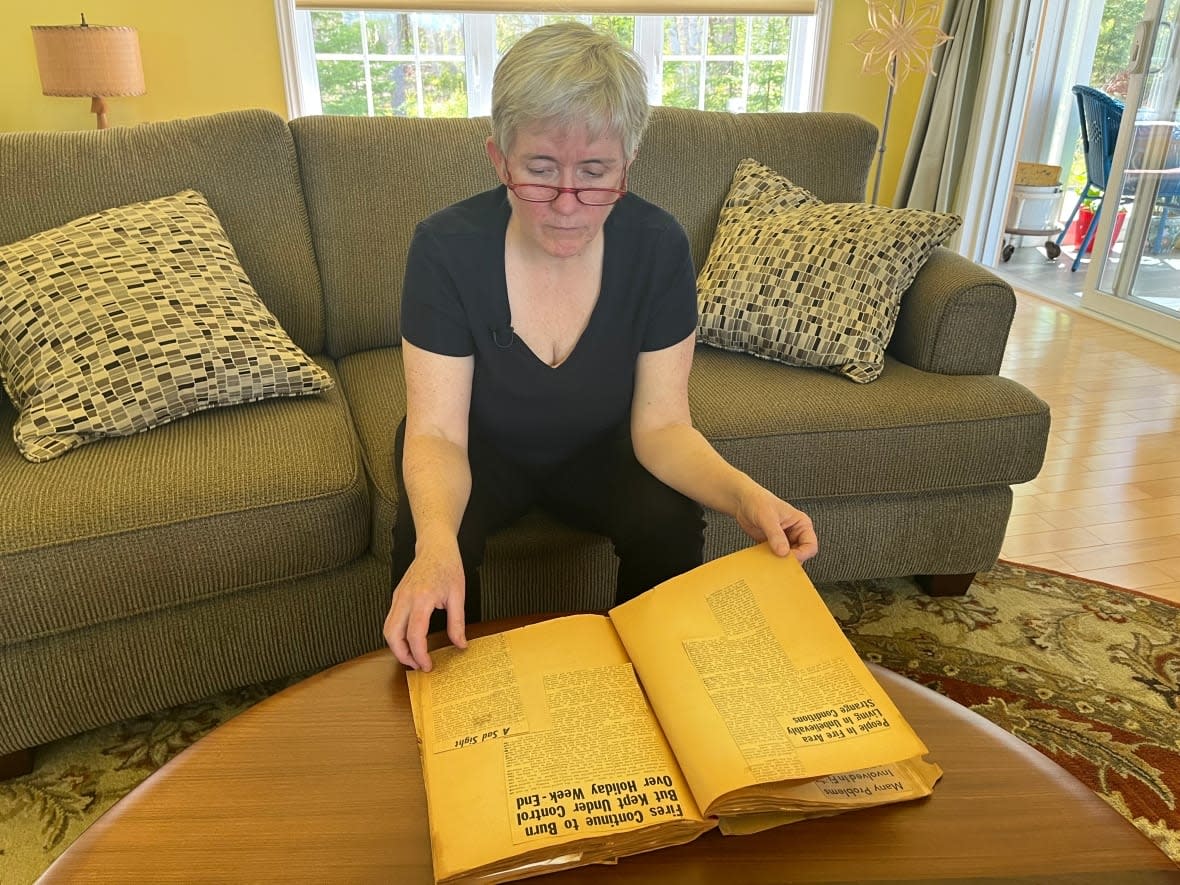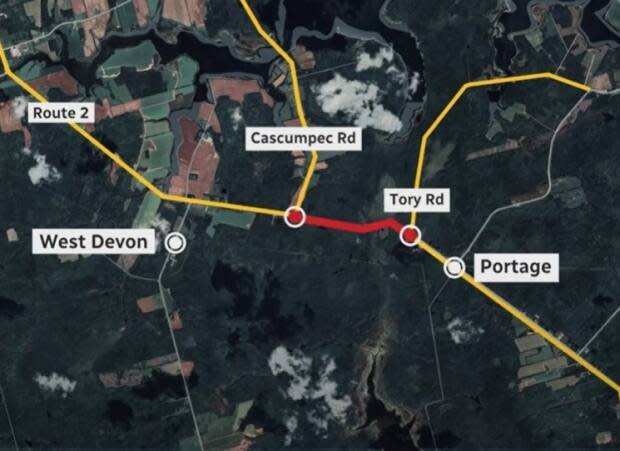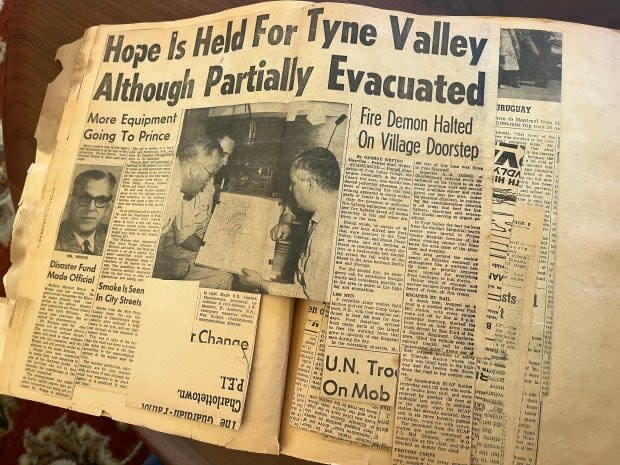One way in, one way out worries West Prince residents

Thelma Phillips worries about what would happen if a fire broke out near her home in western P.E.I.
Her house sits on the edge of the Foxley River, surrounded by trees.
It's not far from the section of Route 2 in Portage — a two-kilometre stretch of road that's the only way in and out of the West Prince area. Phillips worries the 16,000 people who live in West Prince could be cut off from the rest of the Island if a fire broke out in the area.
"[Residents] realize that this is the only way in and out," said Phillips. "When you see the events that's happening right now in our neighbouring province of Nova Scotia, it is concerning for people."
Parts of Nova Scotia and New Brunswick have been devastated by wildfires this spring. Thousands of residents have been ordered to leave their homes, and about 200 homes and businesses have been destroyed by fire in the Halifax area alone.
Phillips knows it could happen on P.E.I., too.
Lessons from the past
Her mother, Vivian Phillips, has carefully and meticulously documented what is known as the Great West Prince Fire of 1960. Her father, Harold Phillips, helped fight the fire and helped residents evacuate.
The fire devastated the region, with officials ultimately declaring it a disaster zone.
Phillips digitized her mother's scrapbooks to help future generations learn from what happened 63 years ago.
"It was a scary time, anyone who lived through it never forgot it," said Phillips, as she flipped through the now weathered pages of her mom's scrapbook.

"One fire would start in one place, and another start in another and the winds came up and it just went through hundreds of acres of woodland. There were houses that were lost, barns were lost, thankfully no lives were lost."
And concerns about the lone route in and out of the area were raised back then, too.
"There was talk after that event had finished that they needed to find another way to move people and goods in and out of West Prince," said Phillips.
"It's been talked about since then, since 1960, and I don't believe that anything has ever been done to find another route."
Connecting to emergency services
West Prince residents say they need another way out, especially in light of the repeated closures of the Western Hospital's emergency department in recent years.
"With all the talk surrounding our emergency department in Alberton, you know, there's a lot of worries about that possibly closing in the future, and I know there are closures now," said Hayden Chaisson, who lives in St. Louis.
"My concern would be, if there were something that obstructed that road out of West Prince, how would we access those emergency services?"

Frank Gillis, who lives in Bayside, believes a solution could be found in the case of an emergency — possibly building a temporary bridge nearby.
"I imagine it wouldn't take long to build a bridge there, or something, to accommodate them to come across. It may not be a full one, but a temporary [bridge] to make sure West Prince could get across," said Gillis.
In the legislature Tuesday, Transportation Minister Ernie Hudson said the Confederation Trail could be used as an alternative route out of West Prince.
But the trail is only about 500 metres from the road, which leaves it vulnerable to being shut down by a natural disaster, too.

Hudson said building another road could cost as much as $30 million.
Tignish Mayor Allan McInnis doesn't think the trail is a reasonable solution, and wants answers from the province.
"I know that [Transportation Minister] Ernie Hudson said that it would probably cost $30 million," McInnis said.
"But how many people are from [Portage] to North Cape? And if you divide the amount of people by $30 million, is that what a life is worth?"


